The Kofi Annan Foundation and the Albert Hirschman Centre on Democracy convened the second in a series of thematic roundtables exploring the intersections of democracy and global governance as part of the project “Understanding the Links Between Multilateralism and Democracy to Tackle Global Challenges More Effectively.”
The project aims to foster a common understanding of how democratic, ethical, and inclusive leadership is crucial to addressing global challenges.
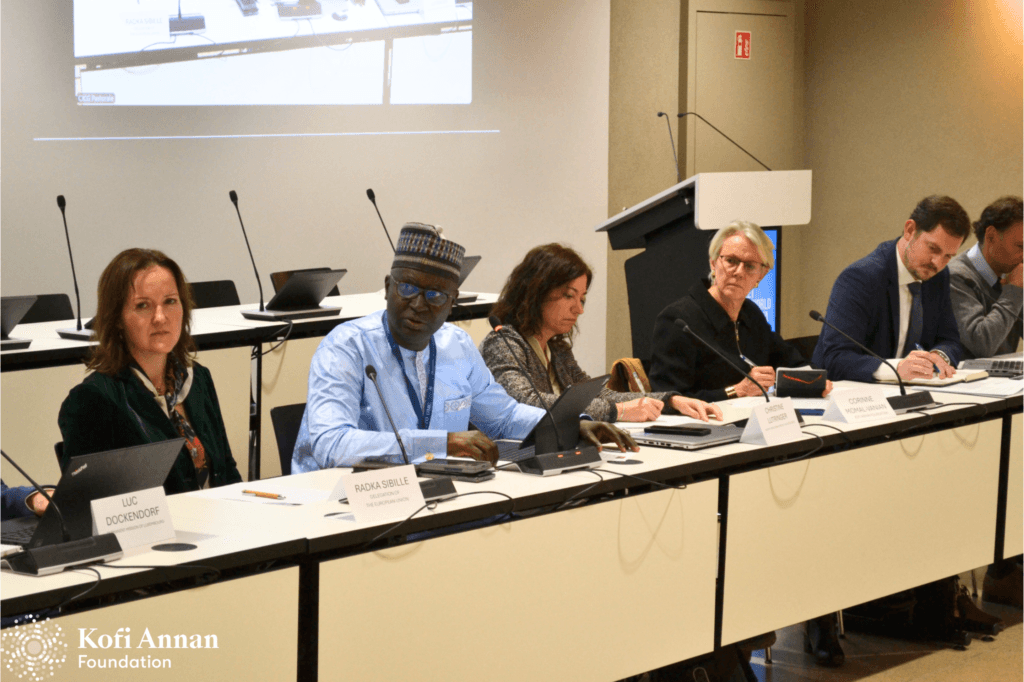

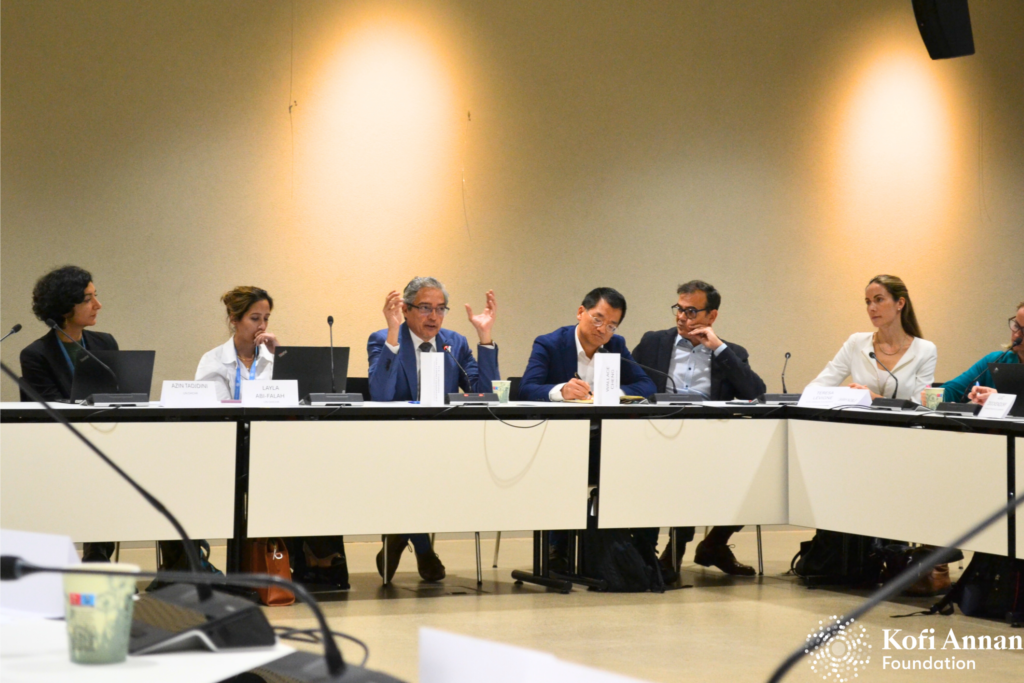
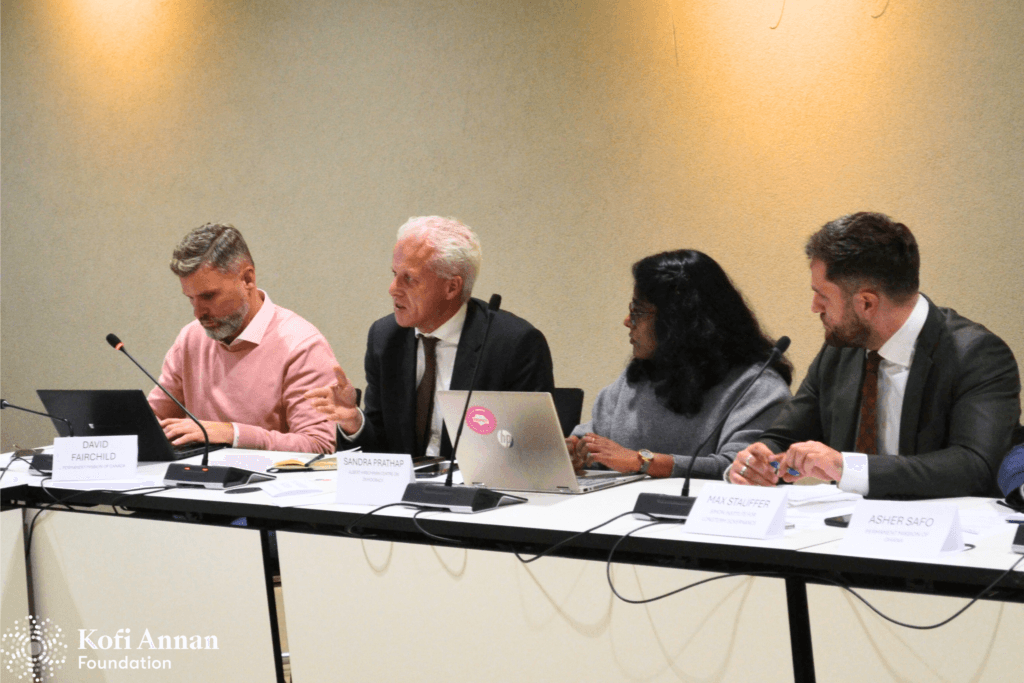
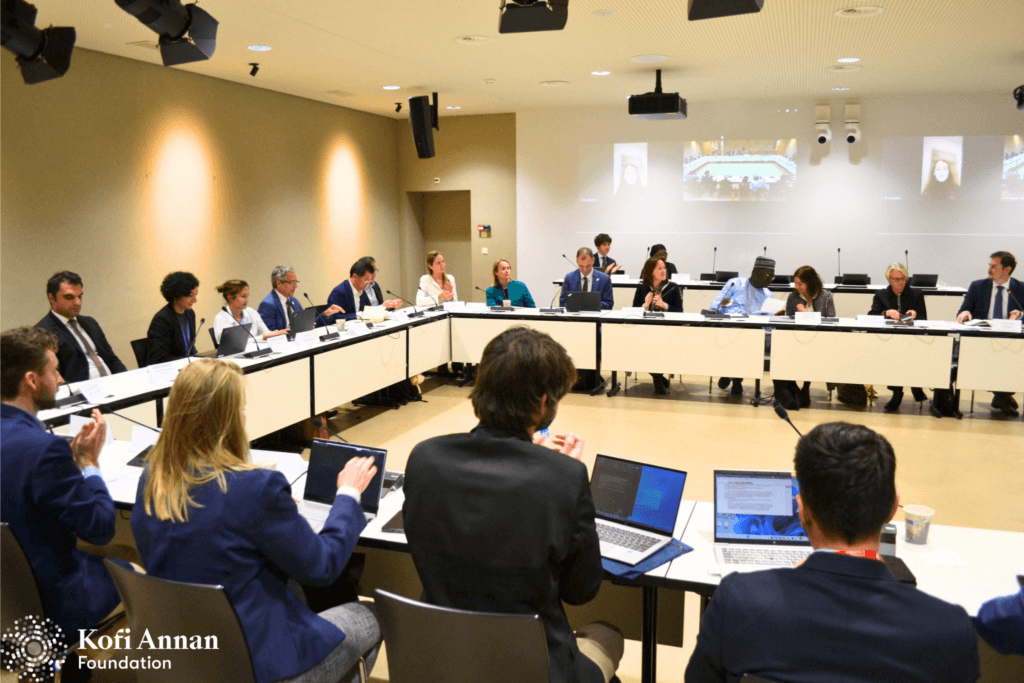
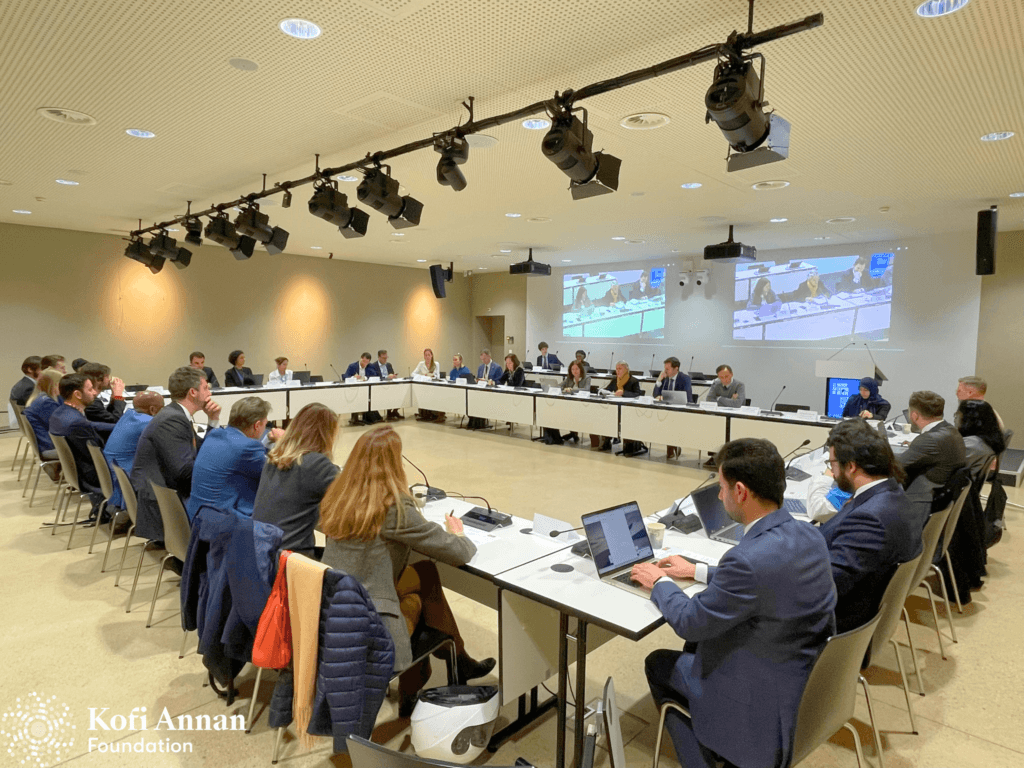
The roundtable, which was organised on 28 November, focused on artificial intelligence (AI) and its implications for democratic practices and the multilateral system. Close to 30 experts from international organizations, civil society, academia, and the private sector participated, examining how AI intersects with democracy and multilateralism.
At a time when the use of AI is raising concerns for the resilience of democratic systems and principles, the roundtable discussion focused on the potential impact of AI on democracy, governance and human rights protection, looking at how multilateralism and current global efforts to regulate AI, such as the global digital compact, can play a role.
“Participants underscored the need for AI global governance frameworks that prioritize equity, inclusion, and accountability.”
The event was introduced by Corinne Momal-Vanian, Executive Director of the Kofi Annan Foundation and Christine Lutringer, Executive Director of the Albert Hirschman Centre on Democracy. Declan O’Brien, Head of Democracy and Multilateralism Programmes at the Kofi Annan Foundation, moderated the event.
How does AI Affect Democracy?
The discussion began with the Issue Brief authored by Jerome Duberry, Managing Director of the Tech Hub and Senior Researcher at AHCD, which poses the question: How does AI affect democracy? And how can AI be democratized?
The issue brief examines three areas of impact at different analytical levels: at the individual level, AI affects citizens’ conditions and opportunities to self-rule; at the group level, AI gives some groups a competitive advantage and challenges the equality of rights among them; and, at the institutional level, AI affects the independence of the state to provide services to its citizens.
The roundtable’s outcome report finds that participants underscored the need for AI global governance frameworks that prioritize equity, inclusion, and accountability. Discussions highlighted the urgency of addressing systemic flaws, amplifying diverse voices, and adopting ethical approaches to decision-making.
Key Takeaways for Democratic Artificial Intelligence
The outcome document from the roundtable on “Democracy & Artificial Intelligence” revealed several compelling themes and actionable recommendations:
1. Embracing Equity in AI Governance
AI governance is embedded in existing power structures, exacerbating inequalities and marginalizing voices from the Global South. A rights-based approach, combined with investment in AI literacy, is necessary to address these disparities.
2. Embracing Inclusive AI Governance
The dominance of large technology companies in AI governance limits meaningful participation from civil society and underrepresented groups. Strengthening accountability and inclusive governance mechanisms is essential.
3. Embracing Ethical AI Innovation
Balancing AI innovation, safety, and democratic values remains complex. Ethical frameworks and safety-by-design principles must guide AI development to ensure it upholds public trust, human rights, and sustainability.
4. Embracing Democratic Safeguards in AI Governance
The concentration of power in AI governance poses risks to democracy and fundamental rights. Voluntary guidelines are insufficient—enforceable global standards are needed to safeguard democratic principles.
The Path Forward
The roundtable on “Democracy & Artificial Intelligence” highlights the importance of integrating democratic principles into multilateral AI initiatives. By promoting international cooperation and bridging the gap between academia and practice, we can develop effective and inclusive AI policies. Moving forward, continuing these dialogues and collaborations will be crucial to ensuring that our approach to AI remains both democratic and effective.
For more detailed insights, download and read the full report and issue brief of the Multilateralism and Democracy Roundtable on AI.


